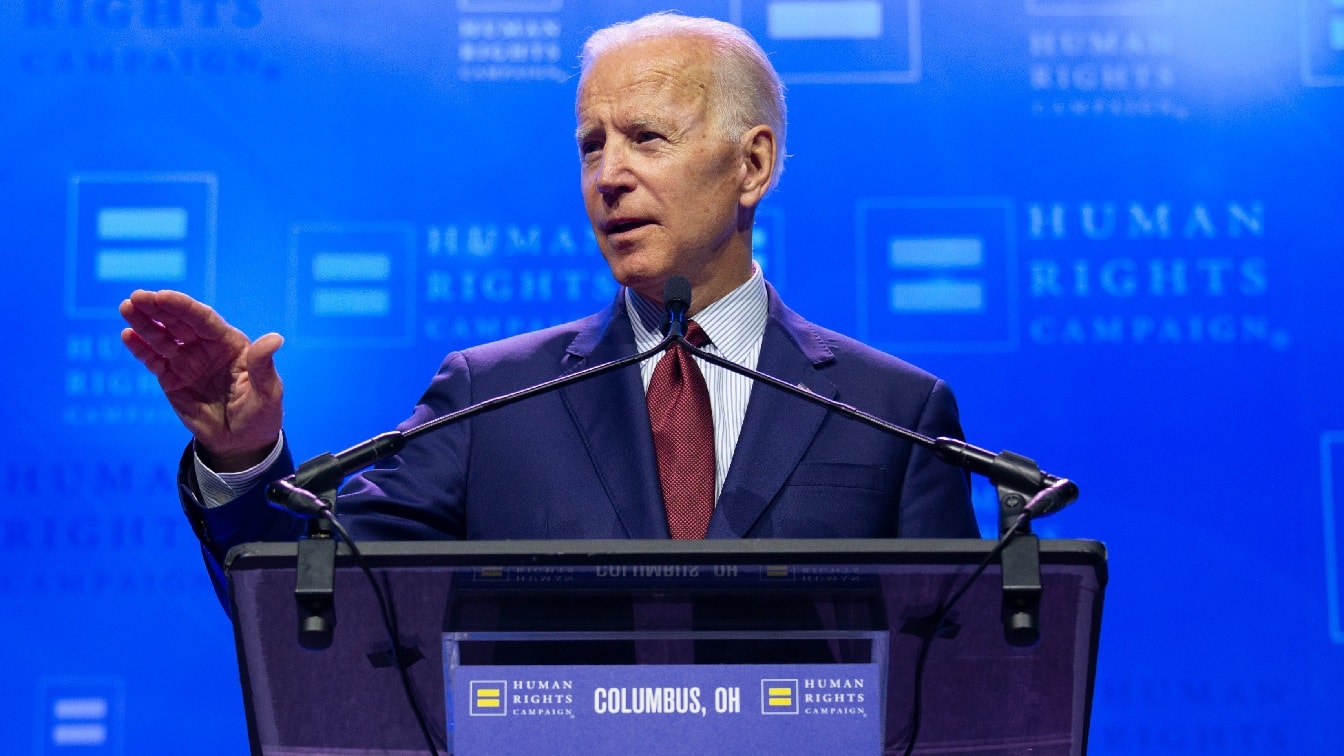President Joe Biden promised during his campaign to recognize the Armenian genocide. To his credit, he delivered. That it took more than a century to recognize historical reality reflects poorly on the U.S. government. What would be worse, however, is if Biden believed that recognizing the past substituted for preventing similar atrocities in the present.
At the collapse of the Soviet Union, long-simmering territorial disputes erupted. Nagorno-Karabakh, a mountainous region that Soviet-era censuses show to be overwhelmingly Armenian, voted in a referendum to rejoin Armenia after Josef Stalin attached the region against popular will to Azerbaijan during his early efforts to gerrymander ethnic minorities. Azerbaijan rejected the referendum and undertook a series of pogroms and a broader ethnic cleansing campaign in the face of which Armenian troops intervened to protect the population. When the guns fell silent, Armenia had almost full control over Nagorno-Karabakh.
The Organization for Security and Cooperation in Europe launched its Minsk Group process to negotiate a peaceful resolution. While Nagorno-Karabakh declared its independence held its own elections, and established its own government, Armenia never recognized Artsakh, as it became known, in order to keep diplomacy alive. Azerbaijan, too, committed to resolve the Nagorno-Karabakh dispute diplomatically. Against the backdrop of initial Azerbaijani ethnic cleansing campaign, Congress forbade dispatch of U.S. assistance to the country but with Azerbaijan committing itself to resolve its dispute peacefully, Congress implemented an annual waiver.
Azerbaijan is a hereditary dictatorship akin to Syria. The ruling Aliyev family is among the world’s most corrupt. Living standards reflect this. While Azerbaijan has fantastic oil wealth, the basis of its caviar diplomacy and reported bribery schemes, its net national income per capita is actually lower than neighboring (and energy poor) Armenia. While the Aliyevs and their inner-circle might be billionaires, ordinary Azeris live in extreme poverty. To distract the public, Aliyev fans the flames of conflict. Racism also plays a role. To listen to Azerbaijanis discuss Armenians today and to witness Azerbaijan’s incitement is akin to hearing Hutu militants describe Tutsis in the months before Rwanda’s 1994 Anti-Tutsi Genocide.
In September 2020, with the United States distracted by its own election campaign, Azerbaijani forces launched a surprise, multipronged attack on Artsakh. After an initial stalemate, Turkish Special Forces joined in and overran much of Karabakh including the mountaintop fortress city of Shushi. While the attack occurred on President Donald Trump’s watch and the Trump team did little, the Biden administration also flubbed the aftermath. Secretary of State Antony Blinken extended Azerbaijan’s Freedom Support Act waiver, apparently in the belief that traditional State Department ‘bothsiderism’ would restore peace. Predictably, though, Aliyev interpreted the move as a sign that Azerbaijan would face no consequence for further aggression. Indeed, over subsequent years, it has not. Ironically, ordinary Azerbaijanis themselves reflect the cynicism at the heart of Aliyev’s actions as they refuse to move to the region unless the Azeri regime forces them with threats of social service cut-offs or prison.
Force matters. With the United States again distracted by Russia’s war in Ukraine, Azerbaijan now might be planning what could be considered the completion of its genocide against Nagorno-Karabakh’s Armenians. With the weather in the Artsakh capital Stepanakert near freezing, and the mountain towns surrounding it already blanketed by snow, Azerbaijan has both cut off both gas supply and blockaded access, in effect subjecting the Armenian population to blockade starvation. On December 12, Armenian Prime Minister Nikol Pashinian assessed, “Today we see consistent actions that are making fears that Azerbaijan is really organizing and preparing genocide in Nagorno-Karabakh more and more objective.”
Pashinian is right. Aliyev aide Hikmat Hajiyev tried to spin a story that Russian peacekeepers blocked the road and gas, but the U.S. government recognizes this as nonsense. In effect, Hajiyev is acting as Aliyev’s “Baghdad Bob” in the hope that Azerbaijan’s fan base will amplify his statements and create enough strategic confusion or delay to allow Azerbaijan, quite literally, to get away with murder. The conclusion Americans should make is that Azerbaijani officials lie and have no credibility.
Perhaps the Aliyev regime calculates that it can bribe Americans, that Americans will believe Azeri propaganda, or Washington will be too slow to react. It is essential Biden—and the leadership of both parties in Congress—prove Aliyev wrong. The chance for genocide in Nagorno-Karabakh is greater today than it was in 1991. The United States should not repeat its mistakes.
It is time to sanction Azerbaijan, both by revoking the 907 waiver and implementing Global Magnitsky Act sanctions on Aliyev and his family as well as Hajiyev. Further, if think tanks and universities will not defend their own integrity, then the U.S. Justice Department should do it for them. Think tanks that claim institutionally that they do not accept foreign money should also close any loophole in which scholars do so as individuals, either directly or as members of boards of Azeri-funded front organizations. Furthermore, the State Department should station its own observers in Artsakh to bear witness. Genocide occurs best in the dark; simply shining sustained light on the situation can be a useful remedy. Finally, it is time to provide substantial support to Artsakh itself to allow it better to defend itself against aggression and genocide.
Indeed, if Biden wishes to correlate historical reality to U.S. policy, then it is time to recognize Artsakh historically an Armenian territory.
Now a 1945 Contributing Editor, Dr. Michael Rubin is a Senior Fellow at the American Enterprise Institute (AEI). Dr. Rubin is the author, coauthor, and coeditor of several books exploring diplomacy, Iranian history, Arab culture, Kurdish studies, and Shi’ite politics, including “Seven Pillars: What Really Causes Instability in the Middle East?” (AEI Press, 2019); “Kurdistan Rising” (AEI Press, 2016); “Dancing with the Devil: The Perils of Engaging Rogue Regimes” (Encounter Books, 2014); and “Eternal Iran: Continuity and Chaos” (Palgrave, 2005).

